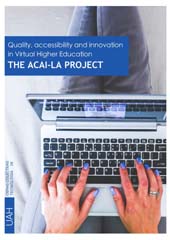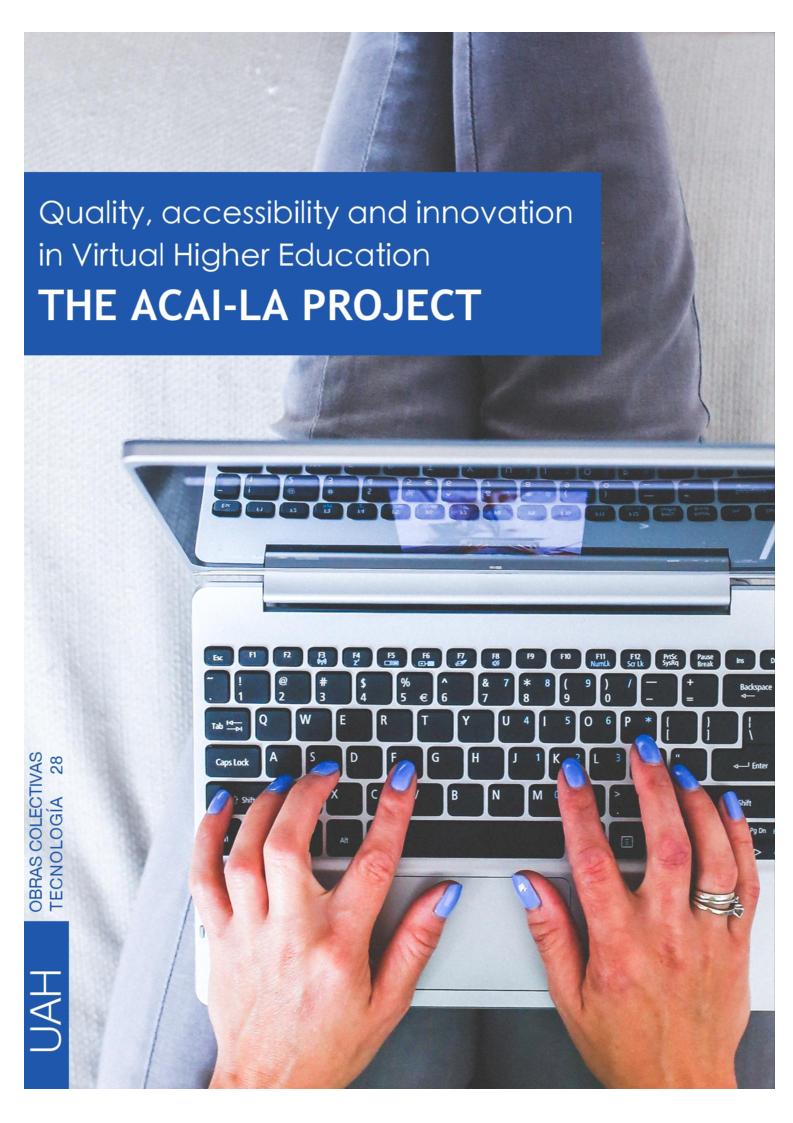Quality, accessibility, and innovation in Virtual Higher Education : the ACAI-LA project
xviii, 178 p.
In the current field of education, there are new theoretical and methodological assumptions that outline a transformation of the educational system and, consequently, teaching resources and applied technology cannot neglect this need. It requires varied and attractive resources that facilitate access to relevant and up-to-date information, so that the concerned people can find it unified, verified, and reliable. In order to integrate and promote these resources, we have the option of creating a virtual campus, consisting of a portfolio of services focused on meeting the needs of the academic community (professors, researchers, students, and graduates, among others), as well as other stakeholders in the educational field, interconnecting the university, companies, and graduates.
It can be defined as a structure created as a virtual community in which the academic and administrative activities of an educational institution are developed, including training options and integrating all the services offered by the organization. Based on the above, through the ACAI-LA project (Adoption of quality, accessibility, and innovation approaches in Higher Education in Latin America), a virtual campus was created, facilitating shared university services for graduates counseling, student orientation, labor insertion, and guidance to teachers to incorporate, in their professional practices, methodologies and innovative educational techniques.
For this, the project developed an integrated design of a platform that served as the basis for these services and the tools that facilitate the use, personalization, and interaction with the objective of promoting an accessible, innovative, and quality virtual training (Campo, Amado, and Espinoza, 2015). It is important that, as professionals or institutions devoted to education, the technology and facilities it provides can meet the needs imposed by the knowledge society, and thus face the challenges to design, build, and lead processes that guide the society for the use of innovative services and tools that allow the development of new practices, and thereby improve the results of teaching and learning. [Publisher's text]
Online only available
-
Information
ISBN: 9788417729776
SERIES



